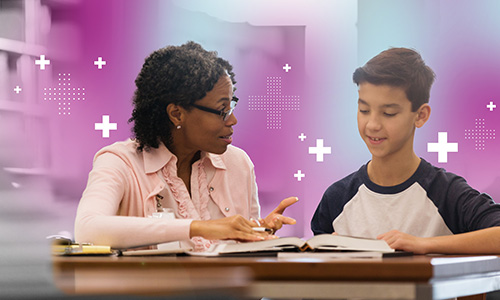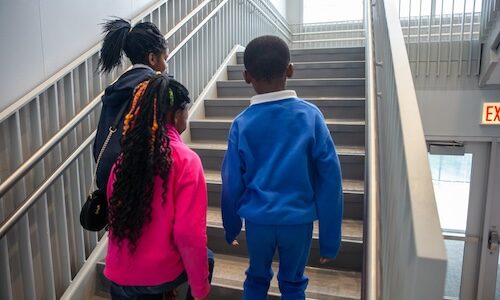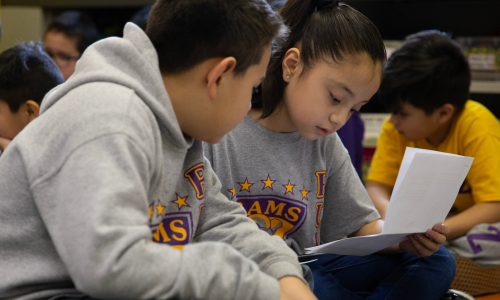
For school-aged children, summer is a time to relax and enjoy the sun, friends, and family. For parents and caretakers, it can be an unstructured season before the focus is once again on logistics, like back-to-school shopping and bus schedules. As this summer comes to a close, I encourage you to also think about the importance of relationships.
It takes a village
Many have heard the African proverb “It takes a village to raise a child.” The implication is that all children are prepared to embark on a trajectory of lifelong success by the adults around them.
The village is the immediate community, but it’s also society at large. It extends to all those who have direct contact with children—teachers, school counselors, family members—but also to those who have a hand in making decisions about systems that affect the lives of children, such as schools, health and human services, and nutrition. It extends to anyone who can make a positive difference in the lives of children. To fulfill this role with fidelity, the villager must focus on building strong relationships.
Relationships and social-emotional learning
Social-emotional learning (SEL) has anchored the national conversation around student health, well-being, and safety as both an inclusive classroom approach and a preventative strategy to bolster strong relationships. It’s a pedagogical method that incorporates positive relationship building by providing an inclusive space while also allowing children to practice setting and achieving goals, showing empathy for others, managing emotions, and making responsible decisions. In many schools and districts, the adoption of SEL infuses the relationship building aspect of a villager’s role with a sound academic trajectory.
When children see integral villagers—parents and caretakers and teachers—working in tandem, their attitudes toward school and their behavior can improve both at school and at home.
Relationship building in practice

There are many inclusive classroom practices, ranging from using positive language to having a colorful, open environment. Here are some other things you can do to encourage strong, healthy relationships:
- Introduce yourself and your goals for the year with a phone call or letter to parents and caretakers before school starts. As Michelle Albright and Roger Weissberg explain in “School-family partnerships to promote social and emotional learning,” when children see integral villagers—parents and caretakers and teachers—working in tandem, their attitudes toward school and their behavior can improve both at school and at home. This initial contact can be the catalyst for a year-long dialogue and collaboration, including during assessment season. (See “10 ways for teachers and parents to communicate better about assessments” for more on keeping the lines of communication open during that time of year.) It invites parents and caretakers into the school community and shows they’re always welcome to seek information to benefit their child. It also creates a space to share authentic feedback. The power of constructive feedback and information still reigns supreme in building strong relationships that truly support a child.
- Encourage parents and caretakers to focus on relationship building at home. Remind them that consistency is key and that constant communication with their child about academic—and also social and physical—well-being builds a holistic relationship that helps children feel safe and supported, the foundation to thriving in school and life. Developing and maintaining a positive relationship with you as the child’s teacher also allows for collaboration on strategies to help the child do well; a respectful space to voice concerns and ask questions; and opportunities to resolve conflict in a positive, efficient way
The highest performing schools often have strong community and school relationships.
As a parent with children enrolled in a public school and as a former public school principal, I’ve observed that the highest performing schools often have strong community and school relationships. It’s important to acknowledge the role of a strong community, ensure proper supports are in place for all learners, and elevate the power of meaningful relationships in and outside the classroom, all with the goal of improving student outcomes. It truly takes a village.
Wishing you a great start to the new school year. Don’t forget the power of relationships!







